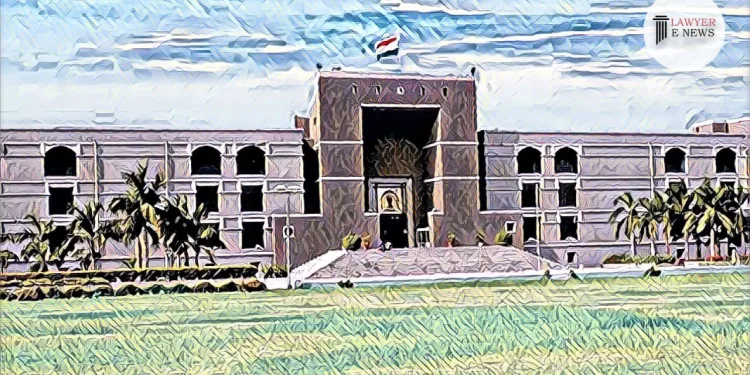False Address and Religion Concealment Deceive Authority: Gujarat High Court in Partial Quashing of FIR

High Court quashes charges under Sections 177, 181 IPC, and Section 6(d) of the Disturbed Areas Act, but retains other charges for trial.
In a recent judgment, the Gujarat High Court partially quashed the FIR against Firoz Falibhai Contractor in a case involving property transactions in a disturbed area. The court’s decision, delivered by Justice Ilesh J. Vora, addressed the procedural aspects and the allegations of misleading information provided by the accused. The ruling emphasized the importance of accurate disclosures in legal processes and the conditions under which certain legal provisions can be invoked.
The case arose from Firoz Falibhai Contractor’s purchase of a property in Samarpan Society, Vadodara, which is classified as a ‘disturbed area’ under the Gujarat Prohibition of Transfer of Immovable Property and Protection of Tenants from Eviction from the Premises in Disturbed Areas Act, 1991. The sale of property in such areas requires prior permission from the Deputy Collector. Contractor allegedly provided false information regarding his religion and address to obtain the necessary sanction, leading to allegations of criminal breach of trust, cheating, and forgery.
Justice Vora noted that while applying for the previous sanction, Contractor did not disclose his religion (Parsi) and provided a false address, misleading the authorities into believing the transaction involved Muslim community members. The court observed that this intentional concealment and submission of misleading information could constitute an offense of criminal breach of trust and cheating.
The judgment delved into the specific legal requirements for prosecuting offenses under Sections 177 and 181 of the IPC, which pertain to furnishing false information and false statements. The court highlighted the legal bar under Section 195(1) of the Cr.P.C., which restricts the court from taking cognizance of such offenses without a written complaint from the concerned public servant. Consequently, the court quashed the charges under these sections.
Justice Vora remarked, “In view of the bar under Section 195(1) of the Code of Criminal Procedure, 1973, the Trial Court could not have taken cognizance of the offense punishable under Sections 177 and 181 of the Indian Penal Code, except on the complaint in writing of the public servant concerned.”
The court also quashed the charges under Section 6(d) of the Disturbed Areas Act, noting that the amended provision was not in force at the time the FIR was registered. The State conceded that the notification for the amended section had not been issued when the alleged offense occurred, rendering the invocation of this section legally unsustainable.
The Gujarat High Court’s ruling underscores the criticality of adherence to procedural requirements in legal processes and the significance of providing accurate information. By quashing part of the FIR, the judgment delineates the boundaries of legal provisions and reinforces the procedural safeguards intended to prevent misuse of legal processes. The remaining charges will proceed to trial, where the accused can raise all pertinent contentions.
Date of Decision: May 30, 2024
Feroz Falibhai Contractor vs. State of Gujarat & Anr.






